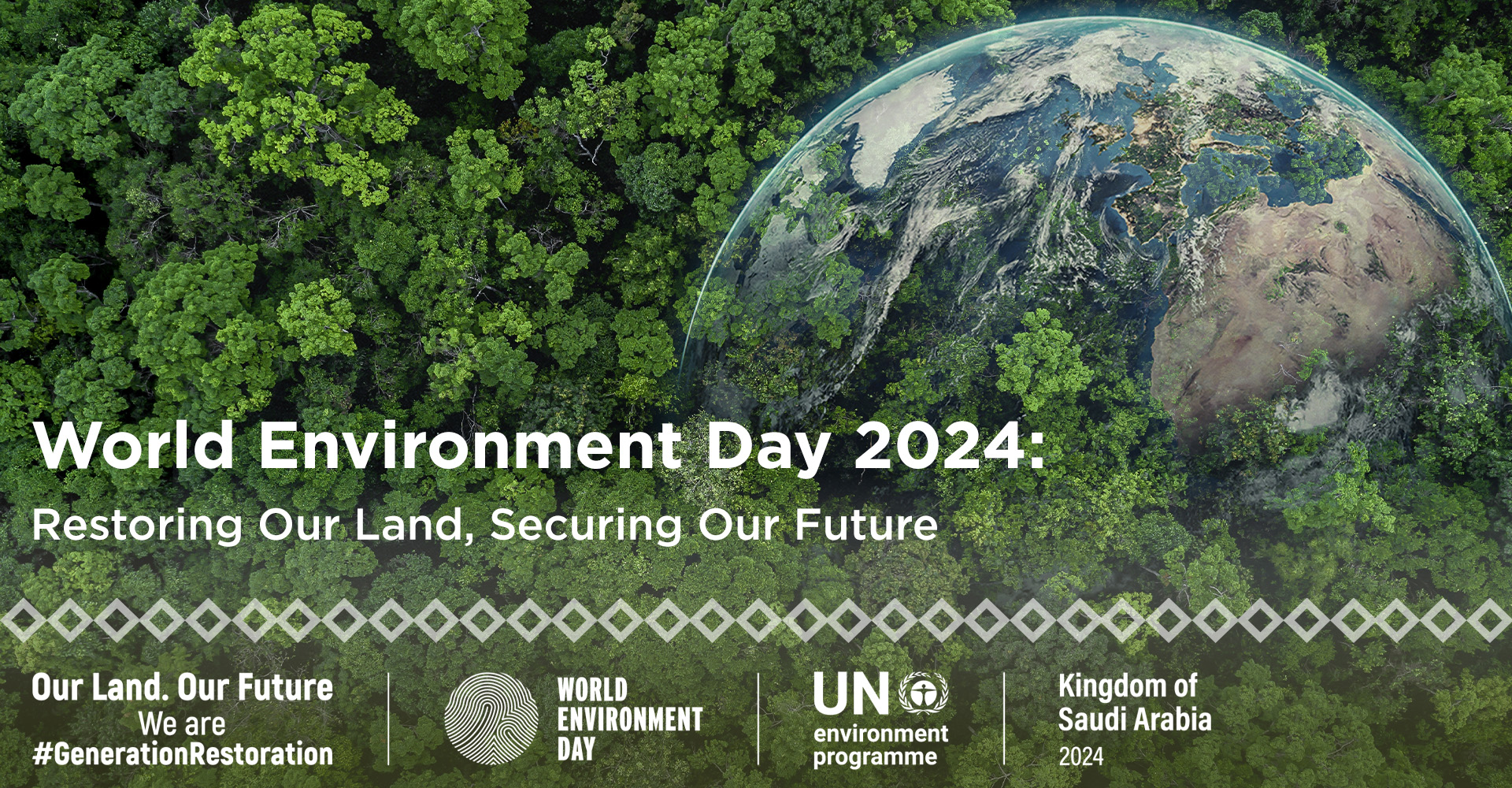|
On this World Environment Day, Khatib & Alami joins the global community in recognizing the urgent need to address land degradation, desertification, and drought. Under the slogan "Our land. Our future. We are #GenerationRestoration," we highlight our commitment to sustainable practices and innovative solutions that restore our environment and build resilience against climate change.
Here, we showcase four of our key projects that exemplify our dedication to land restoration and sustainable development.
1- Innovating in Sustainable Wastewater Treatment and Resource Recovery
Al-Madinah Al-Munawwarah’s wastewater treatment and sludge management facility is an award-winning exemplar project that shows how the Kingdom of Saudi Arabia is tackling water scarcity through substantial investment in wastewater treatment and recovering energy and nutrients. This project has significant socio-economic benefits as the facility has significantly reduced the pollution of water wells. The treated water is being reused for irrigation and agricultural purposes, and the surrounding area has also been enhanced through tree-planting schemes.
Effective use of technology and solar energy is reflected in the design of a sludge solar drying system instead of conventional sludge drying beds. This system captures solar energy inside specially designed greenhouses and turns sludge into a year-long valuable resource for agricultural and industrial use. By exchanging heat and energy in 25,000 m² of covered solar drying cells, a minimum total water evaporation rate of 3,000 kg/m²/year can be reached. This innovative approach reduces the environmental impact of traditional sludge disposal methods and contributes to sustainable development by providing a renewable source of nutrients for crops. Using solar energy in drying significantly reduces operational costs and reliance on nonrenewable energy sources. Our commitment to utilizing technology and renewable resources in our wastewater treatment processes demonstrates our dedication to environmentally friendly practices and long-term sustainability.
2- Combating water shortages, improving supply, and restoring agricultural lands in Egypt
The New Delta Agricultural Wastewater Treatment Plant in Egypt is an award-winning, record-breaking project supporting the irrigation of over two million acres (8,000 km2) of agricultural land. This facility has set four Guinness World Records and is integral to the Egyptian government’s strategy to expand the country’s agricultural area by over 30% in the next five years. It will contribute to developing the Western Desert region and create new sustainable communities.
With a capacity of 7.5 million m3 of wastewater daily, this plant represents a significant milestone in water security and agricultural wastewater treatment. It features 131 process buildings and employs innovative technology that will benefit millions of people. The project also includes constructing a 120 km course to transmit agricultural drainage from Delta Governorates to the New Delta Agricultural Wastewater Treatment Plant. The reclaimed water is designed to irrigate more than 600,000 acres of reclaimed land, part of the “New Delta” national project. This project is not just about supporting Egypt’s 2030 National Agenda and UN Sustainable Development Goals. It is about making a difference, combating shortages, improving supply, and restoring around 210,000 hectares of agricultural land.
3- Addressing Basra's Water Salinity Crisis with Advanced Technology
In response to the critical water salinity crisis in Basra, Iraq, the Mheila Desalination Plant is designed to meet the needs of the Abu Al-Khaseeb region. The desalination and water treatment facility, with a 72,000 m3/day capacity, utilizes a reverse osmosis (RO) system capable of treating water with salinity levels ranging from brackish to highly saline. The plant ensures flexible operation under varying salinity scenarios, with treated water being disinfected and pumped to Basra City's water supply network.
The plant's efficient energy recovery and control systems enhance its operational sustainability, addressing immediate water needs and long-term environmental challenges.
4- Enhancing Water Access and Quality in Ethiopia
The Degahbour Town Water Supply and Sanitation Project in Ethiopia aims to improve local communities' water access and quality by upgrading water supply facilities such as boreholes, water treatment plants, water transmission facilities, water storage tanks, and distribution networks.
The water treatment plant features a comprehensive process, including various civil works and treatment processes, ensuring reliable operation and delivery of clean and safe water for multiple purposes. By addressing water safety and building local capacity, the project focuses on enhancing the community’s resilience and supporting sustainable development.
Through these projects, we reaffirm our commitment to sustainable development and environmental restoration. By implementing innovative technologies and best practices, we contribute to the global effort to restore degraded land, combat desertification, and enhance drought resilience. On this World Environment Day, let us all strive to protect our environment, promote sustainable development, and create a better future for future generations.
|
